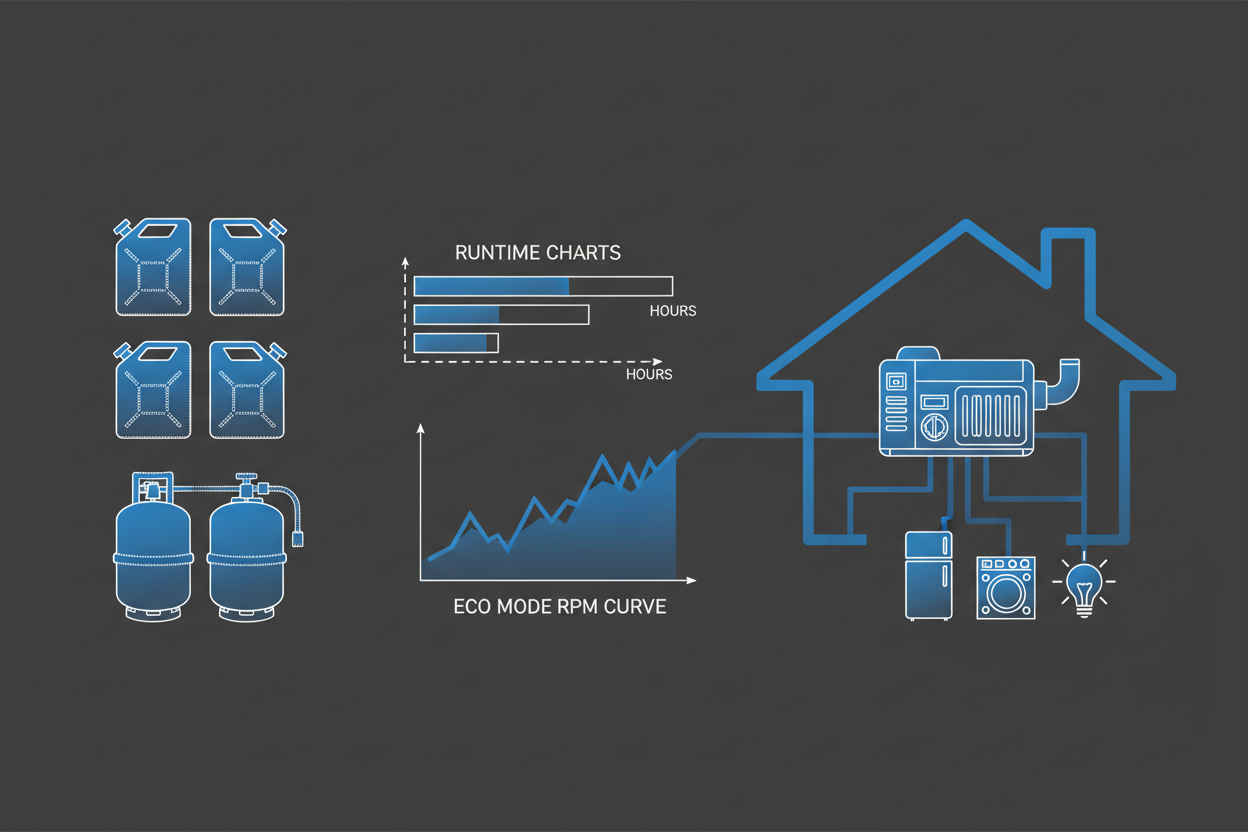Fuel Planning for Home Backup Generators During Extended Outages
Effective fuel planning ensures reliable generator operation during long outages. Homeowners benefit from understanding runtime, consumption rates, and safe storage methods.
Fuel availability varies by region and season. Planning ahead helps maintain stable power when grid failures last for several hours or days.
Why Fuel Planning Matters
Backup generators must operate for long periods during storms or blackout events. Proper storage and rotation prevent unexpected shutdowns.
Gasoline, propane, and hybrid systems each offer unique advantages. Homeowners can choose based on storage capacity and outage duration.

Typical Runtime Expectations
Runtime depends on load level and generator efficiency. ECO mode extends runtime significantly by reducing engine speed at lighter loads.
- Gasoline runtime: 6–12 hours per tank at 25–50 percent load
- Propane runtime: 8–20 hours depending on cylinder size
- Lower loads: Longer runtime with reduced fuel draw
- Higher loads: Shorter runtime with increased consumption
Gasoline for Short and Medium Outages
Gasoline offers high power output and easy refueling. It suits short or moderate outages lasting one to three days.
Fresh gasoline should be rotated every few months. Stabilizers extend shelf life and improve performance.
- Store multiple small cans for easier handling
- Use stabilizer for long-term storage
- Keep cans in ventilated outdoor spaces
Propane for Longer Outages
Propane stores safely for long periods without degradation. It serves as a reliable long-duration fuel source.
Larger cylinders extend runtime dramatically. Homeowners often combine several tanks for multi-day coverage.
- Long shelf life with no stabilizer needed
- More predictable runtime than gasoline
- Cleaner combustion during home backup
ECO Mode and Load Management
ECO mode reduces fuel consumption by matching engine speed to demand. It works well when powering routers, lights, and communication devices.
High-surge appliances should be used sparingly. Staggering loads prevents sudden fuel spikes and runtime loss.
- Run heating appliances individually
- Allow refrigerators to cycle naturally
- Maintain load below seventy percent
Building a Multi-Day Fuel Strategy
A balanced plan includes gasoline for quick refills and propane for long storage. Combining both ensures flexibility during uncertain outages.
Tracking consumption helps refine plans for future storms. Households can estimate daily requirements based on past events.
Conclusion
Fuel planning supports reliable generator operation during extended outages. Homeowners stay prepared by storing fuel safely, managing loads, and using ECO mode effectively.
